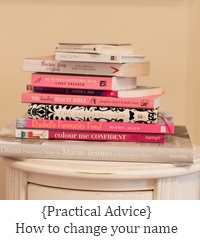Seven things you need to know about conflict resolution before you say �I do�.
Every human life has a yearning for significance; to be cherished and to have an important role in life and in the life of others. This is a natural longing, and should be recognized in and by us all, as an essential part of who we are.
The actual incident was so insignificant, that it hardly warrants a mention at all, but in the brief moment my new husband and I stood, still smelling of honeymoon suntan oil and sand, arguing about who would sleep on which side of the bed, I knew that some strange deep emotion had been struck a blow. Not able to deal with it, or even put my finger on what I felt, I did what we all do; I pushed it down and buried it.
Twenty-two years on, while training to be a counsellor this ‘insignificant’ incident came charging full steam into my life again, and I recognized it for what it was. In the moments where my groom of two weeks insisted that he couldn’t sleep on a particular side of the bed, something inside me realised that I was not (and wouldn’t be) the centre of his universe. It sounds ridiculous, and even as I write it now I can’t believe that I believed it was a realistic ‘dream.’
Many of us make the mistake, without ever realising it, of assuming that the person we choose to spend the rest of our lives with, will love and cherish us 24/7 in deep significant, unselfish and sacrificial ways. We of course never actually say, or even allow it to become clear, but if we are honest with ourselves it is often what we believe, because it is what in our deepest being, we long for.
Unfortunately, no human will ever meet those needs and we are destined to be hurt and hurt most by the ones we love. And what do we do when we’re hurt, girls? We protect ourselves. We unconsciously seek to devise ways to avoid it happening again. For some it is in the form of submission and retreat, for others it will be to ‘blow-up’ and ‘fight’ back, but it is fair to say that we manipulate and seek to control the situation.
The trouble with all of this is it doesn’t build the relationship; it simply creates barriers and divisions which are much harder to bring down, than they were to put up. Take it from someone with 23 years of marriage of just that.
So, is it all hopeless doom and gloom? Well before you head off to cancel the venue and return the ring, let me add - there is hope! If you’ll take a few tips from someone who’s struggled along with ‘himself’ through 23 years and avoid some of the mistakes I’ve made, then here it goes:
1. Start with a bit of self help. We each bring baggage into our relationships, past experiences through which we filter current events. You need to spend some time on your own and think about yourself. Reflect on the joys and pains that life has brought you, and give yourself permission to be sad and to grieve for the things that haven’t been all you hoped them to be. This is not about blaming people or events, but about accepting that sad things are part of life and have been part of making you who you are today. Take time to do this and talk a few things over with a trusted friend - not in an effort to ‘fix’ things but just to voice them and accept them. Write them down if it helps.
2. Reflect honestly. Think of a recent event that disappointed you. What was your reaction? What was the emotion you felt? Was the emotion appropriate for what happened? i.e. If he forgot to bring home milk, were you furious to the point of screaming? Recognise your armour and your weaponry. Armour: Begin to see the real emotion that anger so often covers; hurt, sadness, disappointment. Anger is often the disguising emotion which protects us from awareness of what’s really going on.
Weapons: When we have protected ourselves and suppressed our true emotions, lest we get even more hurt, we often get defensive or attack the other person. Your reactions in situations where you are hurt will help you to recognise the ways you try to manipulate others. A key to recognizing this is if you are disappointed by how the other person responds (indicating that you expected/ wanted a particular reaction from them because of what you said or did) even apologies can be manipulative.
3. Release control. You will note that in the above YOU are only analyzing YOU. One of the most fundamental things you need to acknowledge in any relationship is;you can only control and are only responsible for what you do. You may have desires for others to behave in certain ways, which is not wrong, but trying to manipulate or control them will only lead to frustration and conflict.
4. Find fulfilment. No one will ever meet all your needs. Ensure you have interests, friends and hobbies outside of your primary relationship.
5. Be open. When discussing any issue, especially a potential conflict, be willing to talk from how you FEEL and to encourage your partner to do the same. Rather than getting caught in the ‘who did, who said’ arguments, because they are always the surface issues of something that touched a deeper emotion.
6. Don’t criticise. Try not to get into the habit of using criticism as a way of addressing conflict. The ‘You always…’ or ‘You never...’ conversation starters are not helpful, they attack your partner’s character and don’t address what is really going on. Try ‘when you do ___ it makes me feel…’
7. Talk about it. Above all, talk about deep things. Learn to recognize your own emotions and don’t be afraid to voice them. Help your partner vocalise how he feels about certain things and be willing to listen. ALL feelings are legitimate, even if they are not what you or others would feel because they will be affected by each person’s emotional baggage.
When the euphoria of falling ‘in love’ becomes something mundane, we must begin the ‘work’ of being in love. Choosing to love even when we don’t always feel loved and learning to show love in a way our partner appreciates. Romance is great and needs to be worked at, but living daily, deeply connected with words of encouragement and acts of love is a life-long gift we give to our partners and our marriages.
Main image by Elizabeth Messina.
Related Content:
Like this?














































































































Comments
Have something to say about this article? Leave a comment!